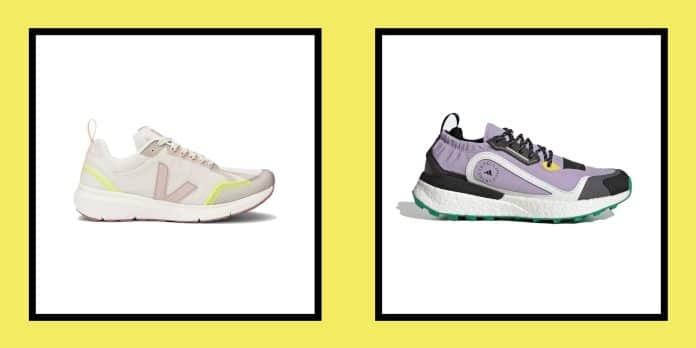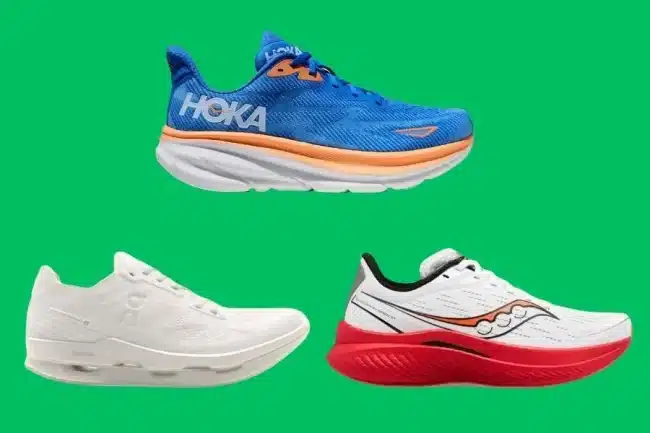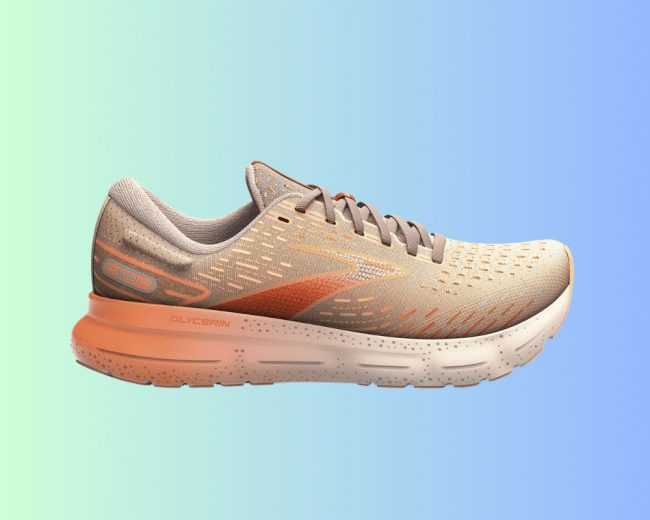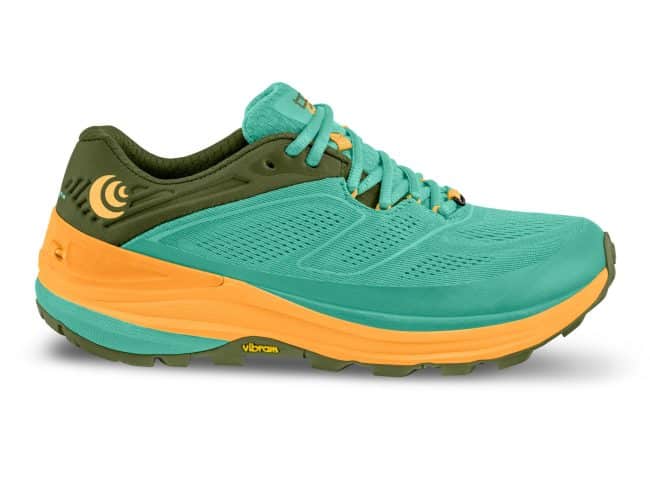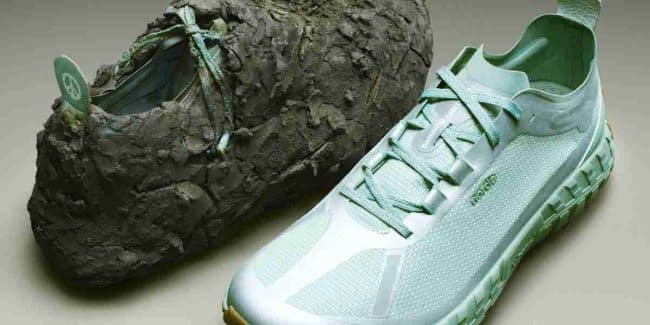Finding vegan-friendly running shoes can be a challenge for those who follow a plant-based lifestyle. With the rising popularity of veganism, more and more people are looking for ethically and environmentally conscious options when it comes to footwear. In this article, we will explore the availability of vegan-friendly running shoes and discuss the importance of purchasing cruelty-free and sustainable footwear for runners. So whether you’re a seasoned marathoner or just starting your fitness journey, join us as we uncover the world of vegan-friendly running shoes and discover the perfect pair for your active lifestyle.
This image is property of c02.purpledshub.com.
Review contents
Top 10 Vegan-friendly Running Shoe Brands
When it comes to finding vegan-friendly running shoes, there are plenty of options available from various brands. Here are the top 10 vegan-friendly running shoe brands to consider:
-
Adidas: Adidas offers a range of vegan-friendly running shoes that are both stylish and sustainable. They use synthetic leather and other plant-based materials in their shoe designs.
-
Nike: Nike is a well-known brand that also offers vegan-friendly running shoes. They have incorporated recycled materials and natural rubber in some of their vegan shoe options.
-
New Balance: New Balance is committed to offering vegan-friendly options to their customers. Their vegan running shoes often utilize synthetic leather and recycled polyester.
-
Saucony: Saucony is another brand that has recognized the demand for vegan running shoes. They incorporate plant-based materials and recycled components into their vegan shoe designs.
-
Brooks: Brooks is a brand that is known for its commitment to sustainability. Their vegan running shoes are made from a variety of eco-friendly materials, including recycled polyester and natural rubber.
-
Merrell: Merrell offers a range of vegan-friendly running shoes that are known for their comfort and durability. They often use synthetic leather and other plant-based materials in their designs.
-
ASICS: ASICS is a brand that has been increasingly focusing on sustainability and offering vegan choices. Their vegan running shoes often feature synthetic leather and recycled materials.
-
VIVOBAREFOOT: VIVOBAREFOOT specializes in minimalist running shoes and has a selection of vegan options. They use innovative materials such as cork and plant-based fabrics in their designs.
-
Inov-8: Inov-8 offers vegan-friendly running shoes that are known for their performance and durability. They utilize synthetic materials and recycled components in their shoe designs.
-
Altra: Altra is a brand that offers vegan-friendly running shoes with a focus on comfort and support. They use synthetic materials and plant-based fabrics in their designs.
These are just a few of the many vegan-friendly running shoe brands available today. Each brand incorporates sustainable and cruelty-free practices in their designs, allowing you to make a compassionate and eco-friendly choice for your running footwear.
Materials Used in Vegan Running Shoes
Vegan running shoes are made using a variety of materials that are free from animal-derived products. Here are some common materials used in vegan running shoes:
-
Synthetic Leather: Synthetic leather is a vegan alternative to traditional leather. It is made from polyurethane or other synthetic materials and mimics the look and feel of real leather.
-
Recycled Materials: Many vegan running shoes incorporate recycled materials, such as recycled polyester, in their designs. These materials help reduce waste and promote sustainability.
-
Natural Rubber: Natural rubber is a plant-based material that is commonly used in vegan running shoes. It provides traction and durability, making it a suitable choice for athletic footwear.
-
Plant-based Materials: Some vegan running shoes use materials derived from plants, such as corn or pineapple fibers. These materials offer a sustainable and eco-friendly alternative to synthetic materials.
-
Cork: Cork is a renewable and sustainable material that is often used in vegan running shoes. It is lightweight, water-resistant, and provides cushioning and support.
-
Hemp: Hemp is a versatile and eco-friendly material that is commonly used in vegan footwear. It is durable, breathable, and has natural antibacterial properties.
-
Bamboo: Bamboo is another sustainable plant-based material used in vegan running shoes. It is highly renewable, lightweight, and offers natural moisture-wicking properties.
-
Linen: Linen is a breathable and lightweight material that is often used in vegan running shoes. It is made from the fibers of the flax plant and is known for its durability.
-
Recycled Polyester: Some vegan running shoes incorporate recycled polyester, which is made from recycled plastic bottles. This helps reduce waste and minimize the environmental impact of shoe production.
-
Microfiber: Microfiber is a synthetic material commonly used in vegan running shoes. It is lightweight, durable, and offers similar properties to real leather.
These materials provide vegan-friendly alternatives to traditional shoe materials, allowing you to make a compassionate and environmentally-conscious choice for your running shoes.
How to Determine if a Running Shoe is Vegan-friendly
If you’re looking to purchase vegan-friendly running shoes, it’s important to know how to determine if a shoe meets vegan standards. Here are some tips to help you identify vegan running shoes:
-
Check the Label: Many shoe manufacturers clearly label their vegan products as such. Look for labels that indicate the shoe is vegan-friendly or free from animal-derived materials.
-
Look for Vegan Certifications: Some organizations provide vegan certifications to products that meet specific vegan standards. Look for certifications from organizations such as PETA or The Vegan Society.
-
Research the Brand’s Ethics: Before making a purchase, take the time to research the brand’s ethics and commitment to vegan and sustainable practices. Look for brands that prioritize cruelty-free manufacturing and eco-friendly materials.
-
Review the Shoe’s Materials: Check the shoe’s materials list to ensure there are no animal-derived products used. Look for materials such as synthetic leather, recycled polyester, or natural rubber.
-
Seek Expert Advice: If you’re unsure about a particular shoe, seek advice from vegan athletes, online forums, or vegan running communities. These individuals can provide insights and recommendations based on their experiences.
-
Read Customer Reviews: Customer reviews can be a valuable resource in determining if a running shoe is vegan-friendly. Look for reviews from other vegans or individuals who prioritize cruelty-free products.
-
Contact the Manufacturer: If you have specific questions about a shoe’s vegan status or materials, don’t hesitate to reach out to the manufacturer directly. They should be able to provide you with the information you need.
-
Check online Vegan Shoe Directories: There are several online directories and databases that list vegan shoe options. These resources can help you find and compare vegan running shoes from different brands.
-
Consider Ethical Manufacturing Practices: In addition to being vegan-friendly, consider choosing running shoes from brands that follow ethical manufacturing practices. Look for brands that prioritize fair labor standards and environmental sustainability.
-
Check for Sustainable Packaging: While not directly related to a shoe’s vegan status, sustainable packaging is an indicator of a brand’s commitment to the environment. Look for shoes that come in eco-friendly packaging or are shipped in a sustainable manner.
By following these tips, you can confidently choose vegan-friendly running shoes that align with your ethical values and preferences.
Benefits of Choosing Vegan-friendly Running Shoes
Opting for vegan-friendly running shoes offers several benefits, including:
-
Compassion for Animals: By choosing vegan running shoes, you are actively choosing to not support the use of animal-derived materials, helping to reduce animal suffering.
-
Environmental Sustainability: Vegan running shoes often incorporate recycled and sustainable materials, reducing the environmental impact of shoe production.
-
Cruelty-free Production: Vegan shoes are manufactured without any animal testing or harm, ensuring a cruelty-free production process.
-
Healthier Material Options: Vegan shoes often utilize materials that are free from harmful chemicals, making them a healthier choice for both your feet and the environment.
-
Reduce Ecological Footprint: Vegan shoes have a smaller ecological footprint compared to traditional leather shoes, as they require fewer resources to produce.
-
Variety of Style Options: With the growing demand for vegan-friendly products, brands are offering a wide variety of stylish and fashionable vegan running shoe options to choose from.
-
Support Ethical Brands: By purchasing vegan running shoes, you are supporting brands that prioritize ethical manufacturing practices and promote cruelty-free alternatives.
-
Encourage Innovation in the Market: The demand for vegan-friendly running shoes encourages brands to invest in research and development, leading to innovative materials and manufacturing processes.
-
Positive Impact on the Fashion Industry: Choosing vegan shoes contributes to the shift in the fashion industry towards sustainability and ethical practices.
-
Raising Awareness: By wearing vegan running shoes, you are promoting a compassionate and eco-friendly lifestyle, raising awareness among others about the benefits of choosing vegan-friendly products.
Choosing vegan-friendly running shoes not only benefits animals and the environment but also supports the growth of a more sustainable and compassionate fashion industry.
This image is property of vegnews.com.
The Evolution of Vegan-friendly Running Shoes
The availability of vegan-friendly running shoes has grown significantly in recent years. Several factors have contributed to this evolution:
-
Growing Demand for Vegan Products: The demand for vegan products, including running shoes, has increased as more people adopt a vegan lifestyle or seek cruelty-free alternatives.
-
Technological Advances: Advances in material science and manufacturing processes have made it easier for brands to produce high-quality vegan running shoes without compromising performance or durability.
-
Collaboration between Brands and Vegan Activists: Collaboration between vegan activists and shoe brands has helped raise awareness about the benefits of vegan-friendly footwear and encouraged brands to incorporate more ethical practices.
-
Influence of Vegan Athletes: Vegan athletes, such as ultra-runner Scott Jurek and tennis player Venus Williams, have inspired others by showcasing their athletic achievements while adhering to a vegan lifestyle. Their influence has helped debunk myths that vegan shoes cannot match the functionality of leather shoes.
-
Expanding Market for Ethical Fashion: The market for ethical and sustainable fashion has been growing steadily, prompting brands to offer vegan-friendly options to cater to this consumer demand.
-
Awareness of Global Environmental Issues: Increased awareness of environmental issues, such as deforestation and greenhouse gas emissions, has prompted individuals to seek out sustainable and eco-friendly alternatives, including vegan running shoes.
-
Availability of Sustainable Materials: The development and availability of sustainable materials, such as recycled polyester and plant-based fabrics, have made it easier for brands to produce vegan-friendly running shoes without sacrificing performance or style.
-
Shift towards Sustainable and Cruelty-free Practices: Brands across industries are recognizing the importance of sustainability and cruelty-free practices. This shift has led to increased options for vegan-friendly products, including running shoes.
-
Impact of Social Media Activism: Social media platforms have provided a platform for individuals to share information and raise awareness about vegan-friendly products. This has contributed to the growth of vegan shoe options and availability.
-
Consumers’ Desire for Transparent Supply Chains: Consumers are increasingly interested in the origins of the products they purchase, including running shoes. This desire for transparency has pushed brands to disclose information about their materials, manufacturing processes, and ethical practices.
The evolution of vegan-friendly running shoes is a positive development that reflects the growing demand for cruelty-free and sustainable alternatives in the fashion industry.
Common Myths about Vegan-friendly Running Shoes
There are several misconceptions or myths surrounding vegan-friendly running shoes. Let’s debunk some of the most common ones:
-
Limited Performance and Durability: Vegan running shoes are designed to meet the same performance and durability standards as non-vegan shoes. With technological advancements and innovative materials, vegan shoes can provide excellent performance and durability.
-
Lack of Style Options: Vegan running shoes come in a wide variety of styles, designs, and colors. Brands recognize the importance of appealing to diverse consumer preferences and offer stylish options to suit everyone’s taste.
-
Higher Price Tags: While some vegan shoes may have price tags comparable to non-vegan options, there are also affordable vegan running shoes available. The price of a shoe is often determined by factors such as brand reputation, materials used, and manufacturing processes, rather than the shoe being vegan or non-vegan.
-
Difficulty Finding Vegan-certified Shoes: While it may have been challenging to find vegan-certified shoes in the past, the growing demand for vegan products has led to more brands offering vegan options. Additionally, certifications are not the only indicator of a shoe’s vegan status, as many brands may still offer vegan shoes without formal certification.
-
Lesser-known Brands Are Inferior: Many lesser-known brands prioritize ethical and sustainable practices, offering high-quality vegan running shoes that can rival those of more established brands. It’s important to explore different brands and read reviews to find the best vegan shoes for your needs.
-
Vegan Shoes Cannot Match the Functionality of Leather Shoes: Vegan running shoes can match the functionality of leather shoes, thanks to technological advancements and the use of innovative materials. Vegan options often provide the same level of comfort, support, and performance.
-
Vegan Shoes Cannot Withstand Extreme Conditions: Vegan running shoes are designed to withstand various conditions, including extreme weather. Brands use durable materials that are water-resistant, breathable, and provide the necessary protection and performance for outdoor activities.
-
Vegan Shoes Are Not as Breathable: Vegan shoes utilize materials that offer breathability, keeping your feet comfortable and cool during physical activities. Brands incorporate features such as mesh panels or natural fibers to enhance breathability.
-
Vegan Shoes Are Not Suitable for All Types of Runners: Vegan running shoes are suitable for various types of runners, including beginners, marathon runners, and trail runners. They offer a wide range of options to cater to different needs and running styles.
-
Vegan Shoes Are Only for Vegans: While vegan shoes are popular among vegans, they are suitable for anyone looking for cruelty-free and sustainable alternatives. Choosing vegan running shoes is a conscious decision to support ethical practices and minimize environmental impact.
By debunking these myths, it becomes clear that vegan-friendly running shoes are a viable and desirable option for runners of all backgrounds and preferences.
This image is property of www.topoathletic.com.
Tips for Finding the Perfect Vegan-friendly Running Shoe
Finding the perfect vegan-friendly running shoe requires considering various factors. Here are some tips to help you in your search:
-
Determine Your Specific Running Needs: Consider factors such as the type of running you do, the terrain, and any specific requirements you have for your running shoes.
-
Consider Your Foot Type and Arch Support: Different running shoes cater to different foot types and arch support needs. Determine your foot type (neutral, overpronation, or supination) and choose a shoe that provides adequate support.
-
Test Comfort and Fit: Proper fit is crucial for running shoes. Visit a local running shoe store and try on various vegan-friendly options to find a shoe that feels comfortable and offers a snug fit.
-
Research Online Reviews and Ratings: Read reviews and ratings of vegan running shoes from reliable sources to get an idea of their performance, durability, and customer satisfaction.
-
Seek Recommendations from Other Vegan Runners: Connect with other vegan runners through online forums or social media groups to get recommendations and insights into the best vegan-friendly running shoes.
-
Compare Prices among Different Brands: Compare prices among different vegan-friendly shoe brands to find one that fits your budget while still meeting your requirements for performance and sustainability.
-
Check for Return and Exchange Policies: Ensure the brand or retailer has a flexible return or exchange policy in case you need to make adjustments or return the shoes.
-
Visit Local Running Shoe Stores: Visit local running shoe stores and speak with the staff who can provide expert advice based on your specific running needs.
-
Try Out Different Brands and Models: Experiment with different vegan-friendly shoe brands and models to find the one that offers the perfect combination of comfort, fit, and performance.
-
Consult with a Running Shoe Specialist: If you have specific concerns or requirements, consider consulting with a running shoe specialist who can provide personalized recommendations based on your needs.
By following these tips, you can find the perfect vegan-friendly running shoe that suits your running style, preferences, and ethical values.
Transitioning to Vegan-friendly Running Shoes
If you’re transitioning from non-vegan to vegan-friendly running shoes, here are some tips to ease the transition:
-
Gradual Transition: Transitioning to vegan-friendly running shoes can be a gradual process. Start by incorporating one or two vegan shoe options into your rotation until you feel comfortable fully transitioning.
-
Educate Yourself about Vegan Materials: Take the time to educate yourself about the various vegan materials used in running shoes. Understanding the benefits and properties of different materials will make it easier to choose suitable vegan options.
-
Experiment with Different Brands and Styles: Try out different vegan-friendly running shoe brands and styles to find the ones that best meet your individual requirements and preferences.
-
Seek the Advice of Vegan Athletes: Follow and connect with vegan athletes who can provide guidance and share their experiences with vegan running shoes.
-
Attend Vegan Shoe Expos and Events: Attend vegan shoe expos and events where you can explore a wide range of vegan running shoe options and interact with brand representatives.
-
Join Online Vegan Running Communities: Join online vegan running communities where you can connect with like-minded individuals and seek advice on transitioning to vegan-friendly running shoes.
-
Share Your Experiences and Insights: Share your experiences and insights about vegan running shoes with others. By sharing knowledge, you can help others make informed choices and contribute to the vegan community.
-
Support Vegan-friendly Retailers and Brands: Support retailers and brands that prioritize vegan-friendly products. By purchasing from these companies, you encourage their commitment to ethical practices and help drive positive change in the industry.
-
Encourage Others to Make Ethical Choices: Share information and raise awareness about the benefits of choosing vegan-friendly running shoes with friends, family, and fellow runners. Encourage them to make ethical choices and consider vegan options.
-
Lead by Example: Embrace vegan-friendly running shoes as part of your lifestyle and lead by example. Show others that it is possible to achieve high performance and style while still prioritizing ethical and sustainable choices.
Transitioning to vegan-friendly running shoes is a journey that involves learning, exploring, and making conscious choices. By following these tips, you can make a smooth transition and incorporate vegan-friendly options into your running routine.
This image is property of futurevvorld.com.
Conclusion
The availability of vegan-friendly running shoes has expanded significantly, with many brands offering high-quality, stylish, and sustainable options. Materials such as synthetic leather, recycled materials, natural rubber, and plant-based fabrics are commonly used in vegan shoe designs.
Determining if a running shoe is vegan-friendly can be done by checking labels, looking for vegan certifications, researching brand ethics, reviewing materials, seeking expert advice, reading customer reviews, contacting manufacturers, and checking online vegan shoe directories. Considering aspects such as ethical manufacturing practices and sustainable packaging is also important.
Opting for vegan-friendly running shoes offers numerous benefits, including showing compassion for animals, supporting environmental sustainability, promoting cruelty-free production, providing healthier material options, reducing ecological footprints, and accessing a variety of style options. Choosing vegan-friendly shoes also supports ethical brands, encourages market innovation, and raises awareness about ethical and sustainable choices.
The evolution of vegan-friendly running shoes has been influenced by factors such as growing demand for vegan products, technological advances, collaboration between brands and vegan activists, the influence of vegan athletes, the expanding market for ethical fashion, awareness of global environmental issues, the availability of sustainable materials, a shift towards sustainable and cruelty-free practices, impact of social media activism, and consumers’ desire for transparent supply chains.
Debunking common myths about vegan-friendly running shoes has shown that vegan options can match the performance and durability of non-vegan shoes, offer a wide range of style options, come at various price points, are not difficult to find, lesser-known brands can be high quality, and are suitable for all types of runners, not just vegans.
Tips for finding the perfect vegan-friendly running shoe include determining specific running needs, considering foot type and arch support, testing comfort and fit, researching online reviews and ratings, seeking recommendations from other vegan runners, comparing prices, checking return and exchange policies, visiting local running shoe stores, trying out different brands and models, and consulting with a running shoe specialist.
Transitioning to vegan-friendly running shoes can be done gradually, with education about vegan materials, experimentation with different brands and styles, advice from vegan athletes, attendance at vegan shoe expos and events, joining online vegan running communities, sharing experiences and insights, supporting vegan-friendly retailers and brands, encouraging others to make ethical choices, and leading by example.
In conclusion, there are numerous vegan-friendly running shoe options available to individuals who prioritize compassion, sustainability, and ethical choices. By making a conscious decision to choose vegan-friendly running shoes, you are not only benefiting animals and the environment but also supporting a shift towards a more compassionate and sustainable fashion industry.

